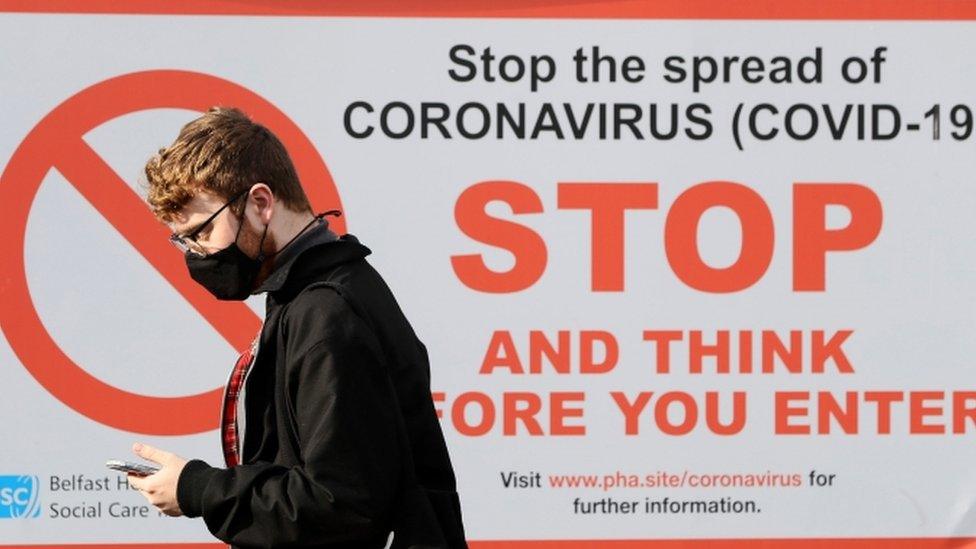Covid-19: Northern Ireland hair and beauty workers question shutdown
- Published
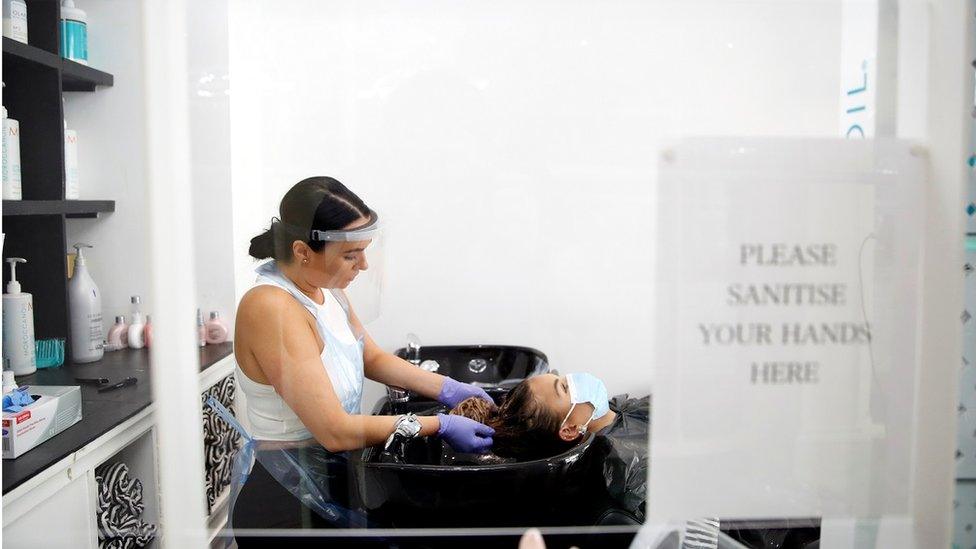
Stormont's decision-making is facing a number of questions, with the sharpest queries possibly coming from hair and beauty workers.
Salons and beauty parlours were forced to shut for four weeks as part of a limited lockdown that began on 16 October.
But papers published by Stormont to show the scientific reasoning behind the lockdown indicates that the move could have a minimal impact on Covid-19's spread.
Stormont ministers were told shutting hair salons, barber shops and beauty parlours - which all fall under the category of close-contact services - is likely to reduce the reproduction (R) number by 0.05.
The R number is the number of people a person with Covid is likely to infect and the goal is to keep R below 1.
Ministers were also advised that salon closures could "disproportionately" affect women and the "poorest" people.
Hospitality businesses have been limited to takeaway services for a month, but by contrast the closure of bars, restaurants and cafes is estimated to reduce R by between 0.1 and 0.2.
So just what does the evidence indicate and how do hairdressers and beauticians feel after reading it?
What does the advice say about close-contact services?
The advice provided to ministers said each visit to a hair or beauty salon "is likely to be high risk as it involves prolonged, face-to-face contact".
But it added that as these visits are "relatively infrequent" the overall impact on the R number is "more limited".
The paper stated that the potential reduction in R is thought to be "up to 0.05, though precise estimation is very difficult".
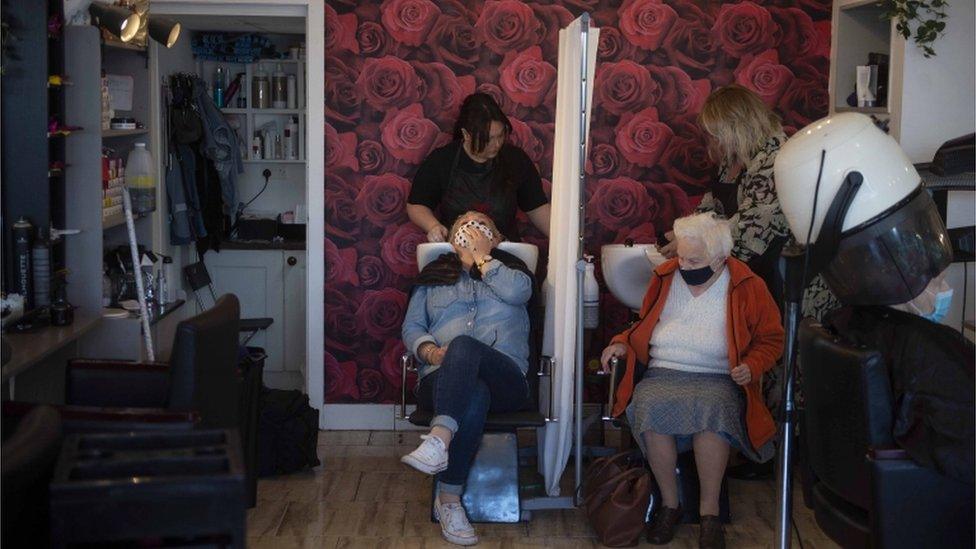
It also suggested that the use of appropriate personal protective equipment (PPE) can "mitigate risk" and that many salons are "already careful with hygiene".
The paper added that evidence from the US-based Centre for Disease Control (CDC) "suggests masks were effective at stopping transmission in a hair dressing salon, but some evidence of infection transmission among hairdressers in the UK".
In terms of the consequences of closure, the paper advises this would results in "high direct impacts resulting from the loss of income for staff" and added this was "likely to disproportionately affect" the poorest people and women.
Chief Scientific Advisor Prof Ian Young warned that the evidence should be "considered in its totality".
He expressed concern that the majority of coverage on Wednesday morning was "focused on one document, a summary document", and added: "It's not particularly helpful to consider that in isolation.
"I hope that people will begin to look at the broader evidence which we're making available."
'Come Friday, no wages'.
Kerry Doherty has been a hairdresser for 28 years - she's self-employed and rents a chair in a salon in Londonderry.
She said she was "quite shocked" by the paper and cannot understand why salons have to close when the estimated impact on R number is so low.
"We were told to close down, that we had to make the sacrifice to protect people from Covid, which is 100%, I totally agree.
"And now this report is saying closing me and other hairdressers does next to nothing to help stop Covid."
The mother of three added: "I really don't believe that we should have been shut down because we had been taking all the precautions.
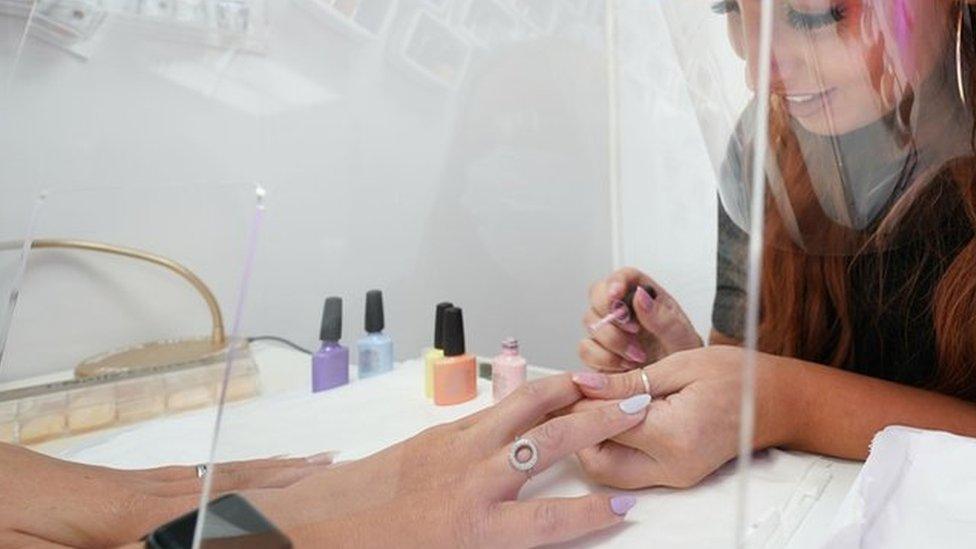
"I've been sterilising the chairs - one in, one out. Everything was sterilised, cleaned after every customer."
She added that she wore PPE, disposable gowns and had "everything in place with the guidelines that had been set out".
Ms Doherty added that because she rents a chair rather than owning a salon, she is not eligible to the financial support available to business owners.
"Come Friday, no wages," she said, adding that she and other hairdressers "haven't been allowed to work, feed our families, pay our bills".
"It's two days away and the people who told me to close haven't come back to give us any financial support."
'Finger has been pointed at these industries'
Carolyn, who owns a beauty salon in the village of Moira, told the BBC's Nolan Show that Stormont's evidence "just doesn't bear weight at all".
"It just beggars belief that they're playing politics with our livelihoods, it's just not fair," she said.
"My anger comes from the fact that I spent thousands training my staff, preparing my business; going above and beyond, doing what they asked us to do,
"And yet here we are, we're closed and we're not allowed to trade.
"It's the same in hospitality, private swimming pools - they've all done what we've been asked to do, and the data is not there to suggest that we are the contributing factor.
"At the end of the day, the finger has been pointed now at these industries."
She added: "Even if, and I'm not suggesting this is what I would want, even if the decision is reversed, that we were allowed to now open and trade - how would we get customers over the door whenever people have been told the executive says that this sector was contributing to the R number and they had to close them down?
"That sector was closed down because of Covid so how are you going to get people back into close-contact services?"
On Wednesday an official from the Department of Finance told the Finance Committee that around 7,500 applications have been made by businesses to the Localised Restrictions Support Scheme.
- Published21 October 2020
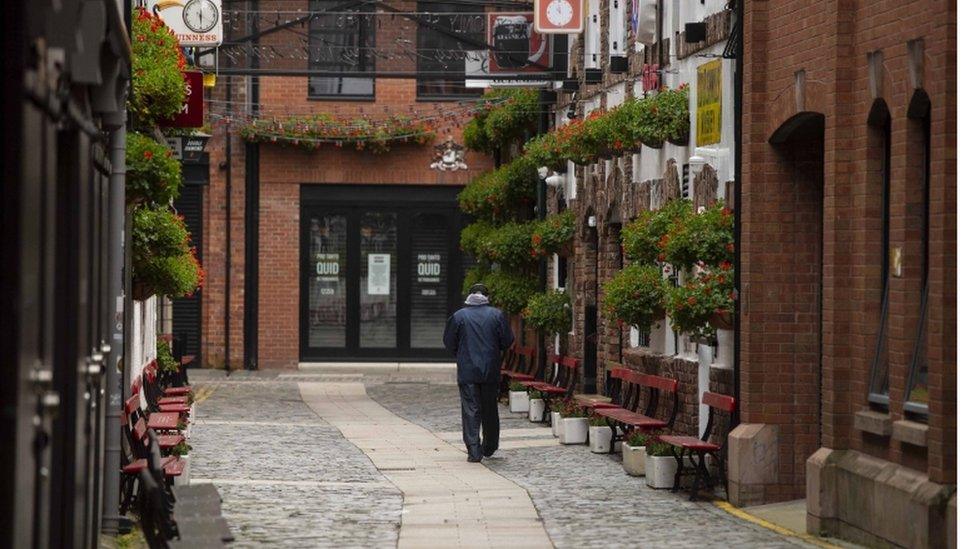
- Published20 October 2020
